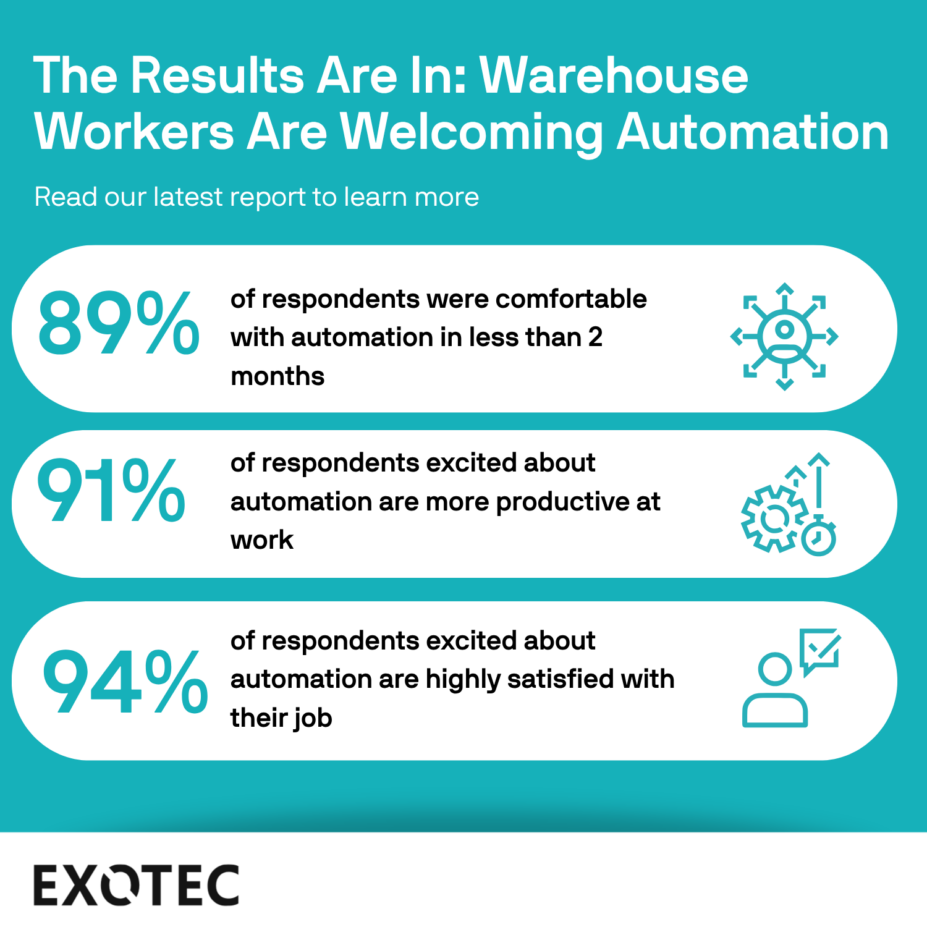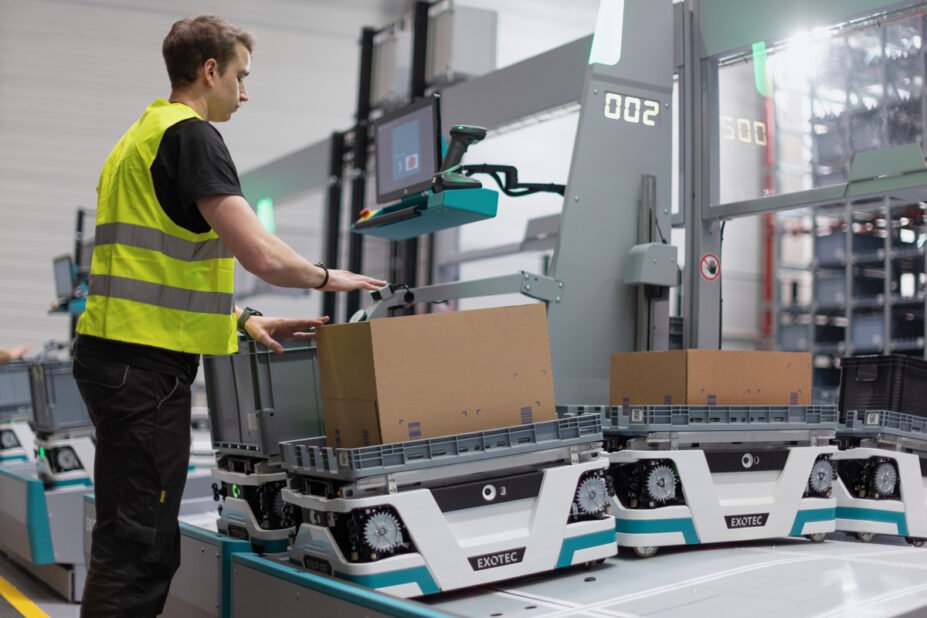Warehouse Workers Are Embracing Automation And Seeing Real Benefits, New Report Finds
Warehouse automation may be transforming global logistics, but a new nationwide survey suggests it’s transforming workers’ careers as well—largely for the better. A report released today by Exotec, a global warehouse robotics provider, reveals strong support for automated systems among U.S. warehouse employees, many of whom say robotics have improved their pay, job satisfaction, and safety on the job.
According to the Warehouse Workers Sentiment Report: Understanding the Impact of Automation on Retention and Satisfaction, nearly half of surveyed workers (49%) say they have received a pay increase thanks to automation, and two in five believe that working with robots makes them more likely to earn a raise or promotion. The survey, conducted online with more than 400 warehouse workers across the country, offers a rare worker-centered view of how automation is reshaping frontline roles.
The data points to a workforce increasingly open to robotic collaboration. Seven in 10 workers report being interested in or open to working alongside automation. Workers were also three times more likely to be drawn to a job in an automated warehouse than deterred by it (37% vs. 13%). Nearly two-thirds (63%) say their job satisfaction is higher when working with automation compared to fully manual environments.
Productivity, Retention, and Safety Gains
Workers cited multiple benefits from robot-assisted tasks:
Productivity: A striking 98% say automation makes them more productive.
Retention: Workers who partner with automation are three times more likely to stay in their job longer (36%) than leave early (11%). They’re also nearly three times more likely to apply to warehouses with automation than those without.
Safety: Three in five say automation has reduced workplace injuries, while 59% report less physical strain.
Enjoyment: Nearly seven in 10 workers (69%) find automated tasks more enjoyable.
“The data is clear,” said Exotec CEO Romain Moulin. “Workers believe that working alongside automation offers new potential for their long-term careers and immediate job satisfaction. Automation is improving take-home pay, boosting safety, and dramatically increasing productivity. The real challenge now isn’t convincing today’s workers that robots are good for their careers—it’s attracting the next generation of workers to experience it for themselves.”
From Skepticism to Support
The report also charts how experience shapes worker sentiment. Nearly half of workers (48%) identify as “Roboptimists,” compared to 32% who are “Roboreluctant” and 20% who remain neutral. Crucially, exposure is the turning point: four in five workers say they no longer oppose warehouse automation after direct experience with it.
Many workers reported shifting from skepticism to support after experiencing physical relief during demanding tasks (51%), receiving help with difficult workflows (57%), or realizing automation didn’t threaten job stability (33%).
Holiday Relief Through Robotics
With warehouses routinely strained during peak seasons, automation appears to offer meaningful relief. Seven in 10 workers say robotics reduce holiday-period stress, and nearly one-third report lower attrition during peak seasons since automation was introduced.
“Like any new technology, there’s a curve in worker acceptance,” Moulin said. “But a little training goes a long way. Trained workers are nearly twice as likely to be Robooptimists—and this training is invaluable when workforce pressure is highest, especially around the holidays.”
Survey Methodology
Exotec’s research was conducted through an online survey administered by Method Research and distributed by Watermelon Research. The survey targeted 400 U.S. warehouse floor workers, representing a broad cross-section of ages and geographic regions. Data was collected from August 18 to September 1, 2025.
The full report is available through Exotec’s website.

